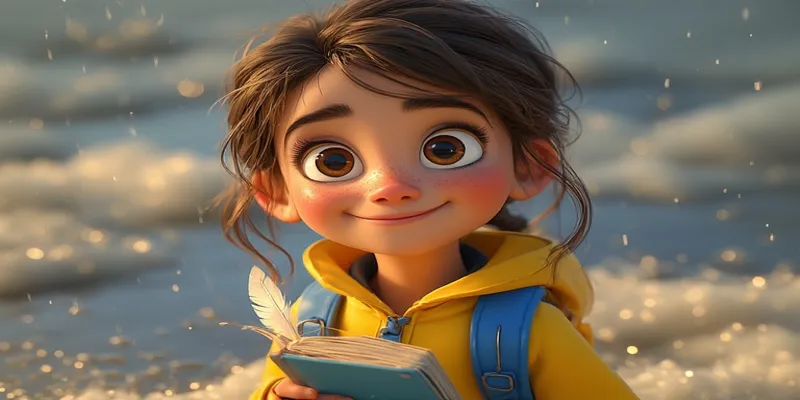
The Ink Lake Bridge Kindness, Bravery, and Teamwork Magic
On the morning the puddles looked like mirrors and the clouds hung low and woolly, an ordinary girl named Amaya was sent to the library to return a book about birds. She was ten, small for her age, and quiet enough that sometimes teachers forgot to call on her. She did not mind being quiet. It meant she could listen to rain threads tapping windows and imagine whether each drop had a tiny voice.
Amaya loved the library. It smelled like pencil shavings, sunshine on old paper, and sometimes cinnamon from a mysterious somewhere. Mr. Reed, the librarian, had a smile like a folded map hidden paths and sudden turns. He waved when she came in and tipped his glasses toward the biography shelves where she always sat to draw. “Stormy morning,” Mr. Reed said. “Good for stories.”
“Good for birds,” Amaya said, showing him the book. A glossy feather was pressed inside as a place marker she had found it at the bus stop and tucked it there, careful as you tuck a secret.
On her way to the shelf, Amaya noticed something odd. The tall bookshelf of famous lives scientists and explorers and people who invented important things like paperclips had a new painting on the endcap. It showed a door half open, and inside the painted doorway was a spiral staircase painted so carefully it seemed you could put your finger on each stair and feel the worn places. Above the door, tiny letters were painted in curving lines. Enter with gentle hands, they read.
Amaya traced the painted letters. The wood was cool and smooth and held a quiet tremble. She glanced back at Mr. Reed, but he was being asked by a toddler whether dragons ate turnips. Amaya thought of her own name, which her grandmother said meant night rain in a mountain language, and she thought of the feather in the book, and she thought that maybe this was the kind of morning that asked you to be brave without warning you in advance.
She didn’t push. She pressed her palms flat against the painted door and asked softly, “May I come in?” Because the letters had said gentle hands, and gentle voices often go together.
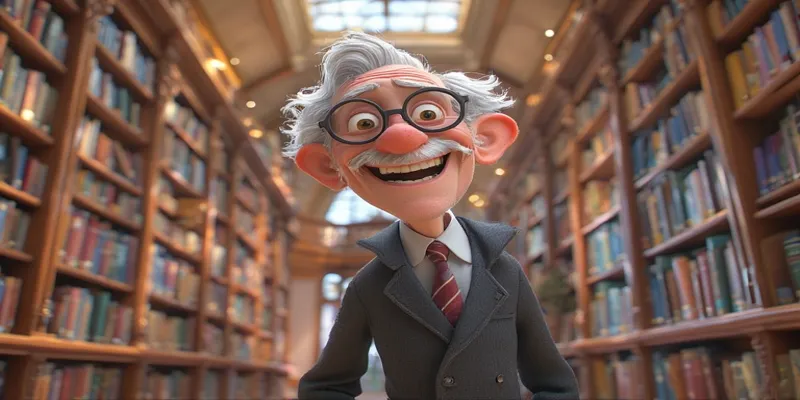
There was a sigh. The painted door swung open like a secret deciding it wanted to be known, and there was the spiral staircase from the painting, but now full of shadows that smelled like pencil shavings and cinnamon and rain.
Down Amaya went, careful, careful, tracing the whorls of the banister with one finger the way you trace a word you cannot yet pronounce. At the bottom, she stepped into a room wide as a gymnasium and softly lit, like a dream curled into a basement. A lake, flat as the left page of an opened book, shone in the middle. The surface wasn't water it was ink, dark and deep, with letters drifting like lazy fish just below the surface. Little paper birds fluttered from shelf to shelf, their wings crisp as card stock. A broom leaned in the corner, snoring lightly. Everything hummed a tune just at the edge of hearing.
“Have you come to help?” asked a voice the size of a teacup.
Amaya looked down and met a lion who was the size of a teapot. His mane was made of fabric scraps polka dots, pinstripes, bits of denim and his button eyes had rings of tiny stitching that made them look surprised all the time. He dipped his head politely. “I am Patch. You’re early. Or late. Time gets confused down here.”
“Help with what?” Amaya asked, because she was still shy enough to feel her knees tremble but brave enough to keep asking questions.
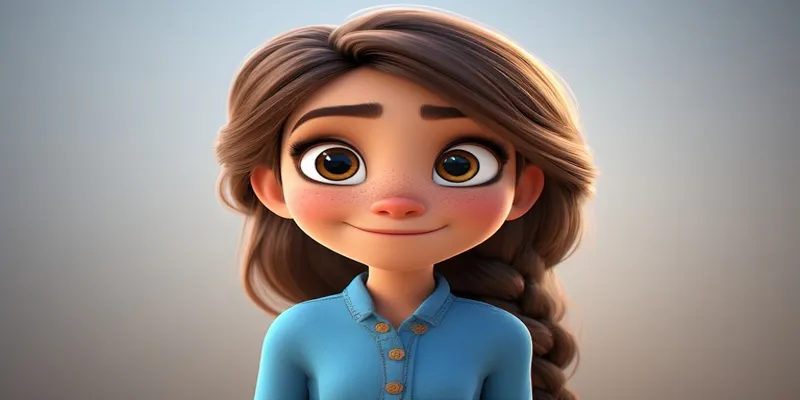
Patch flicked his tail. A small paper crane glided down from a high shelf and landed on Patch’s back. “Kiko,” Patch introduced. “We’re missing a voice. The most important one. Without it, stories tangle. Doors sulk. The ink lake sulks too. Everything gets…sticky.”
The ink lake, hearing itself discussed, burped up a question mark that drifted toward Amaya and popped on her shoe.
“Whose voice?” Amaya asked, thinking of Mr. Reed and how he had the kind of voice that could hush a whole room without raising an eyebrow.
“The Keeper,” Kiko said, in a whisper like the sound paper makes when you fold it carefully. “She used to sit behind the desk upstairs, telling people which books would change their lives today. Then a storm came and the Storm Clock took her voice to keep. It does that sometimes, when it worries a voice will be wasted. It’s high on the other side of Ink Lake, and the bridge well. The bridge is shy.”
Patch sighed. “And there is Later.”
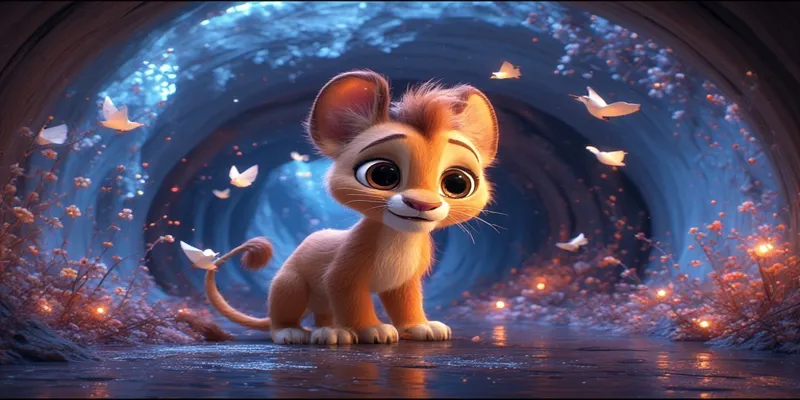
“Later?” Amaya echoed.
“A dragon,” Patch said, and in his button eyes a gleam of thread shimmered. “But not the kind you’re thinking. Later eats time, to protect it from being thrown away. Later thinks if he gobbles enough minutes, no one will ever be sad because of an ending. Later has been circling the Storm Clock, and the clock is ticked, and our Keeper has not told us one story in three rainstorms.”
As if to answer, a distant ticking grew louder, like a polite cough echoing through a cavern. Amaya felt the hair on her arms rise like sea grass in a tide. “What can I do?” she asked, and felt in her pocket for the feather she had pressed a quill shape under her fingers. You can be gentle, she thought to herself. You can also be brave.
Patch and Kiko looked at each other, then at her. “If we bring back the voice,” Kiko said, “we’ll need kindness, bravery, and teamwork. The lake knows who carries those things. It will let us cross if we ask in the right way.”
They went to the lake’s edge. Up close, the ink looked less like black and more like a night sky poured onto the floor, with punctuation blinking like small stars. A raindrop bounced at their feet, pearly and plump. “This is Dot,” Patch said. “Dot tried to be a period once. It was too final. Now Dot prefers bouncing.”
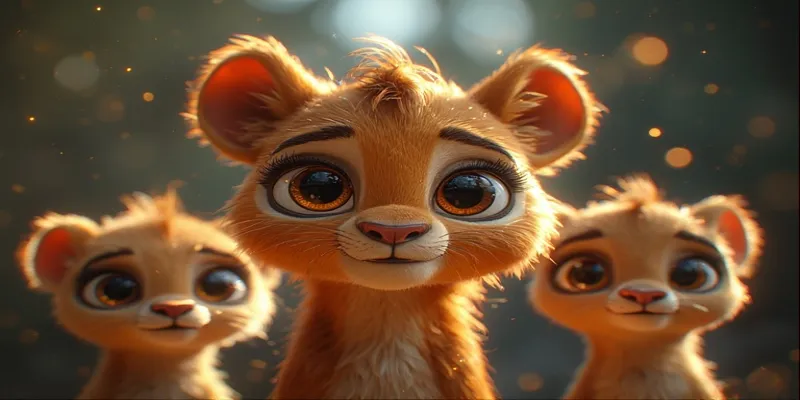
Dot bounced and made a little chiming sound. Amaya crouched. “Hello.” She dipped the edge of the bird book’s feather into the ink and wrote in the air: please. Letters shone briefly before floating down to rest on the surface, forming a slender line out toward the middle.
The sentence bridge began to grow, made of polite words. Please, if it’s alright, could we pass? Thank you. The words linked hands and stretched across the lake, glowing. Amaya’s grandmother said words were doors. Amaya thought maybe words were bridges, too.
“You wrote that so kindly,” the lake murmured. “We like nice. Unkind words sink.”
Halfway across, the bridge trembled. From the shadows beyond rose a dragon not much bigger than a school bus, scaled in procrastination gray. His eyes were not mean they just looked tired with worry. He circled them without flapping, as if the air itself made room for him. “Not yet,” said Later, his voice a yawn you couldn’t argue with. “Wait. Wait one more minute. And another. And ”
Amaya’s throat tightened. She understood Later more than she expected. Sometimes she too saved things for later telling someone she liked their drawing, picking up a crumpled wrapper in the park, asking a new kid to sit with her because she was afraid she would do it wrong. The bridge wobbled. Dot bounced once, caught the edge of Amaya’s sleeve, and steadied her.
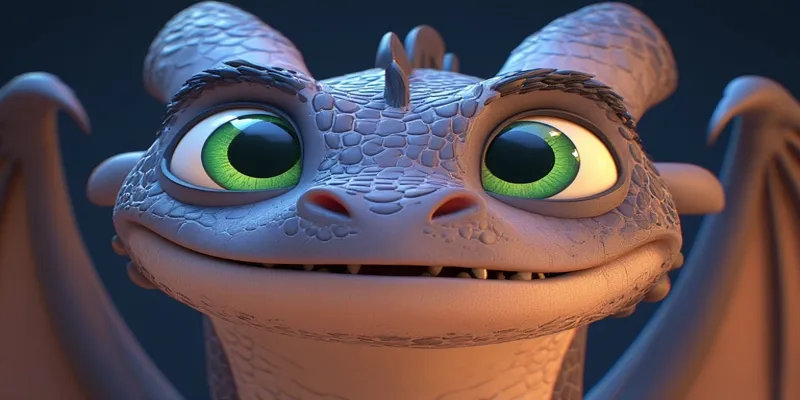
“We can’t wait,” Kiko whispered. “The longer a voice is caged, the smaller it feels.”
Amaya took a breath big enough to be a small brave thing. “Later,” she said, careful, gentle. “What are you afraid of?” She did not shout. She asked the way you ask a snail if it would like you to move it out of the path.
Later paused. No one asked dragons questions like that. “Endings,” he confessed. The word fluttered like a moth. “If stories end, people leave.”
“They do,” Amaya agreed. “But have you ever sat in a kitchen where a story ends and then someone laughs, and someone else says, ‘No, wait, remember the time ’ and another story begins?” She thought of her grandmother again, pausing between stories to pour tea. “Endings make room.”
Later blinked. He had never been invited to imagine that. Most people yelled or ran, or waited until they forgot what they were doing. Amaya held out her hand, steady as she could. “Would you like to help us finish this one? Then start another?”
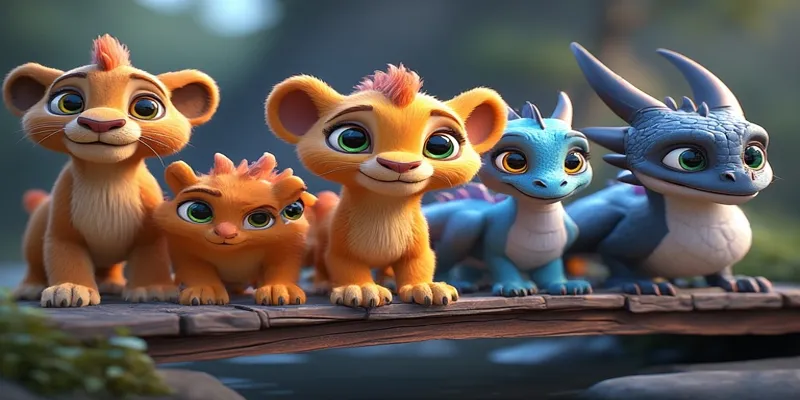
The dragon’s long, dark tail curled around the sentence bridge, and the bridge steadied with a shiver of relief. “I could lend you a slowness,” Later said, voice softening. “For careful parts.”
“Thank you,” said Patch, who believed in thanking dragons whether or not they were helpful.
Together they reached the far side, where the Storm Clock towered, a cathedral of gears and whispering chains. The ticking was like a heartbeat that had learned politeness and forgot how to run. A cage of spun glass hung in the center, and inside a small bright bird darted, beating its wings in a rhythm of words.
“The Keeper’s voice,” Kiko breathed, and slid between gears like a ribbon. Dot squeezed through links no bigger than a teardrop and perched by the lock. Patch wedged his sturdy patchwork paws against a lever that stuck. Amaya felt the slowness Later offered drape itself over her like a calm blanket. The world’s edges softened. She pulled the feather from her pocket and carefully wrote in the air: sorry.
The word hung golden. She said it aloud too. “I’m sorry for the times I chose not to speak because I was afraid. I’m sorry I kept nice thoughts for later. I will try to be brave now.”
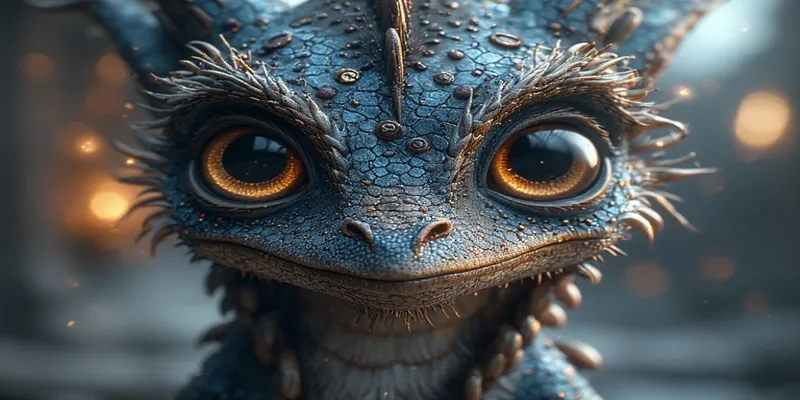
The lock sighed. It wanted to open. But one gear, rusted with worry, glared at them. “What about wrong turns?” it clicked. “What about mistakes?”
Amaya thought of the times she had drawn and torn out the page because the bird’s wing looked wrong. She thought of the wrapper she didn’t pick up last week, the new girl who had sat alone. She pressed her palm to the gear. “We can fix wrong turns,” she whispered. “We can say sorry. We can ask for help.”
Help. Teamwork. She looked at her friends. “Kiko, thread this,” she said, holding out a last loop of string from her hoodie pocket. “Dot, can you make it slippery where it’s stuck? Patch, on my count.” She glanced up. “Later?”
“Slower,” whispered the dragon, and the ticking stretched enough that careful hands could be careful.
“One, two, three,” Amaya said. She pulled the string Kiko tugged and darted Dot smoothed a stubborn cog Patch pushed and Later took some of the rushing minutes and put them gently aside so they wouldn’t trip anyone. The gear freed itself with a shudder that felt like a held breath being let go.
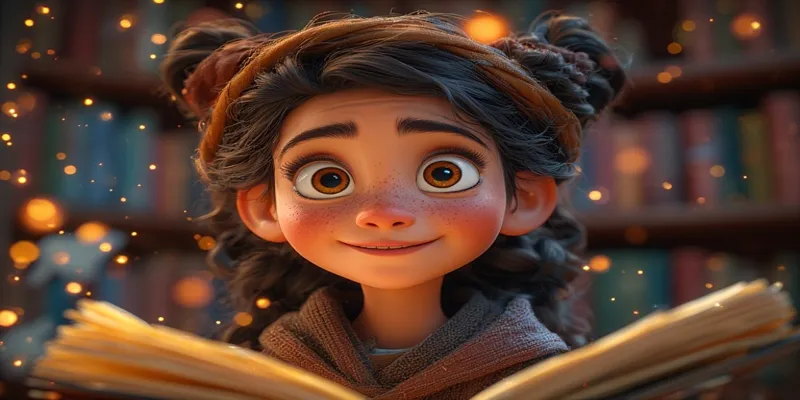
The cage sprang open. The glowing bird shot out, circled the room once, and then flew into Amaya’s mouth. She didn’t panic. It felt like swallowing a song. Her chest warmed, and words bubbled up in her throat like tiny fish that had been waiting all along. “Please,” she tried, and the word sounded like a song sung by someone who knew exactly what each note could do.
They walked back across the bridge with the bird’s warmth bright inside her. Mr. Reed was waiting at the top of the stairs, eyes glazed with hope. Amaya opened her mouth and out flew the bird, straight into Mr. Reed’s. He coughed once and laughed like a bell, and then the library breathed, and all the books shivered happily, and a cinnamon smell fell from the ceiling like confetti.
For three days after that, the town’s colors were a little brighter, as if the leaves had been newly painted and the stop signs had taken a shower. People spoke more softly in the library, not because they were afraid, but because listening suddenly felt as important as speaking. Later curled up under the biography shelves and napped between jobs, purring like a low clock. Sometimes, when a person sat too long staring at a blank page, Later would nibble a minute and hand it back as courage.
Amaya walked to school the next morning with the empty glass bottle she’d found in a puddle and tied to her backpack. It had no message inside now, only a light that pulsed softly when she did something kind. When she held the door. When she picked up a wrapper. When she waved the new girl over at lunch and made room with her stories.
Once in a while, when the sky went woolly again and puddles became mirrors, Amaya returned to the spiral stairs. Patch would trot out to meet her, buttons bright. Kiko would tell her what paperbirds had seen. Dot would bounce in greeting. And Later, who had learned that endings could be shared, would open one eye and say, “Not yet,” with a smile, and then, “Now,” at exactly the right moment.
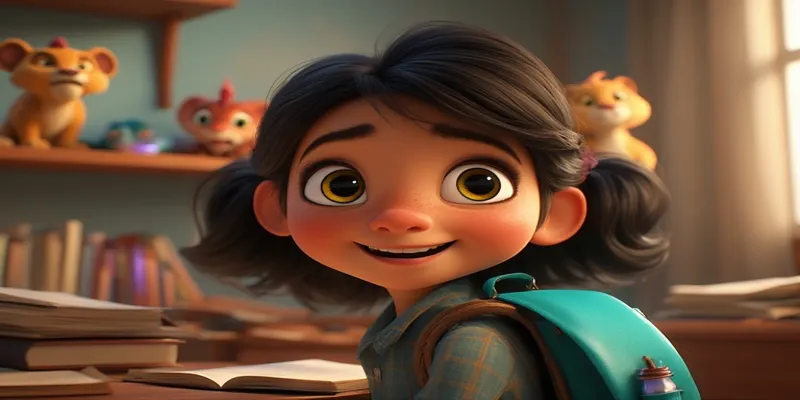
When Amaya had to leave, the Keeper Mrs. Lark, as it turned out, who had been there all along behind Mr. Reed’s desk, just voiceless and smiling with her eyes would pat Amaya’s hand and send her off with a story seed in her pocket. “Plant it with kindness,” Mrs. Lark would say. “Water it with bravery. Let your friends be the sun it needs.”
On the last day of summer, when the library windows held the late light like gold in jars, Mr. Reed read a story aloud about a small bird who thought she could not fly until she met the sky up close and found the wind was on her side. Amaya watched the new girl’s face light up, and without waiting for later, she leaned over and whispered, “Want to draw birds together after?” The bottle on her backpack glowed. The light swam like a tiny fish and made her smile.
That night, Amaya dreamed of the Storm Clock, but it had turned into a garden where gears grew into daisies and numbers ticked into butterflies. In the dream, Later pinned his slow wings up so the sun could warm the cool places, and Patch chased his tail and caught it, and everyone clapped because catching your own tail takes exactly the right mix of patience and silliness.
When Amaya woke up, her grandmother was humming in the kitchen. Amaya hummed along, and the song made the morning feel like a page that had already been promised a happy ending. She took a breath, and it tasted like cinnamon and rain. If anyone had asked her what she had learned, she would have said: kindness opens doors, bravery walks through them, and teamwork keeps the bridge from wobbling. And sometimes, the most extraordinary thing is the moment you say hello to someone you do not know yet and mean it.
The bottle pulsed in agreement from where it hung, catching a ray of sun. It was only glass and light, and it was also a reminder: ordinary hands can do extraordinary things when they are gentle. In a world of ticking clocks and woolly clouds and puddles that look like mirrors, that was a magic worth carrying.
